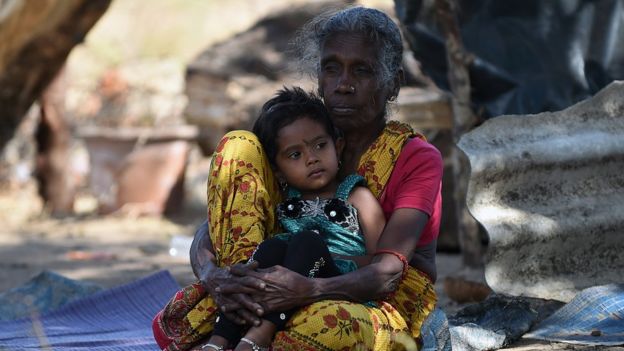By Christine Khamis
Impunity Watch Reporter, Asia
COLOMBO, Sri Lanka—
The United Nations has released a report calling for a special court to try war crimes that occurred during the 26 year long conflict between the Sri Lankan army and the Tamil Tiger rebels. The U.N.’s report calls for a court that is comprised of international judges, local Sri Lankan judges, prosecutors, lawyers, and investigators.
The U.N. report charges both the Sri Lankan government and the Tamil Tiger rebels with committing atrocities against civilians during the war, which ended in 2009. Around 100,000 people were killed during the war, and estimates indicate that an additional 40,000 people were killed during the final stage of the war. Additionally, tens of thousands of civilians went missing during the war and were never seen or heard from again.
The crimes listed in the U.N. report, committed by both the Sri Lankan army and the Tamil Tigers, include indiscriminate shelling in “no shell zones”, extrajudicial murders, enforced disappearances of tens of thousands of people, forced recruitment of adults and children, and acts of torture and sexual violence.

The U.N.’s report states that if forced recruitment by the Tamil Tigers is proven in court, it will be classified as a war crime. The Sri Lankan government’s denial of humanitarian assistance during the war will also be classified as a war crime if that denial is proven in court.
Sri Lanka’s previous government, led by President Mahinda Rajapaksa, resisted international calls to investigate the war crimes. Sri Lanka’s new government, which came into power under President Maithripala Sirisena early this year, promised that it would cooperate with U.N. directives.
However, now that the U.N.’s report has come out, Senior Sri Lankan minister Rajitha Senaratne has stated that the country will implement its own process for addressing the atrocities committed during the war. Mr. Senaratne also said that Sri Lanka is not ready to agree with international inquiries.
Earlier this week, Sri Lanka’s government released plans for a truth and reconciliation commission that will consider war crime allegations. While the court will accept advice from international entities such as the U.N., it will employ a Sri Lankan process to try the war crimes.
The U.N.’s report states that Sri Lanka’s courts lack the necessary credibility to try the war crimes. The U.N. report also highlights the need for Sri Lanka to reform its criminal justice system. Currently, Sri Lanka does not criminalize war crimes, crimes against humanity, or enforced disappearances.
Zeid Ra’ad Al Hussein, the U.N. Commissioner for Human Rights, has stated that only a court made up of international judges and investigators will be able to handle the many alleged war atrocities that occurred during the war.
For more information, please see:
Al Jazeera – UN Urges Sri Lanka War Crimes Court – 17 September 2015
BBC – UN Human Rights Council Urges Sri Lanka War Crimes Court – 16 September 2015
New York Times – U.N. Urges Sri Lanka to Establish Court to Investigate War Abuses – 16 September 2015
The Wall Street Journal – U.N. Report Urges Sri Lanka to Set Up War Crimes Tribunal – 16 September 2015